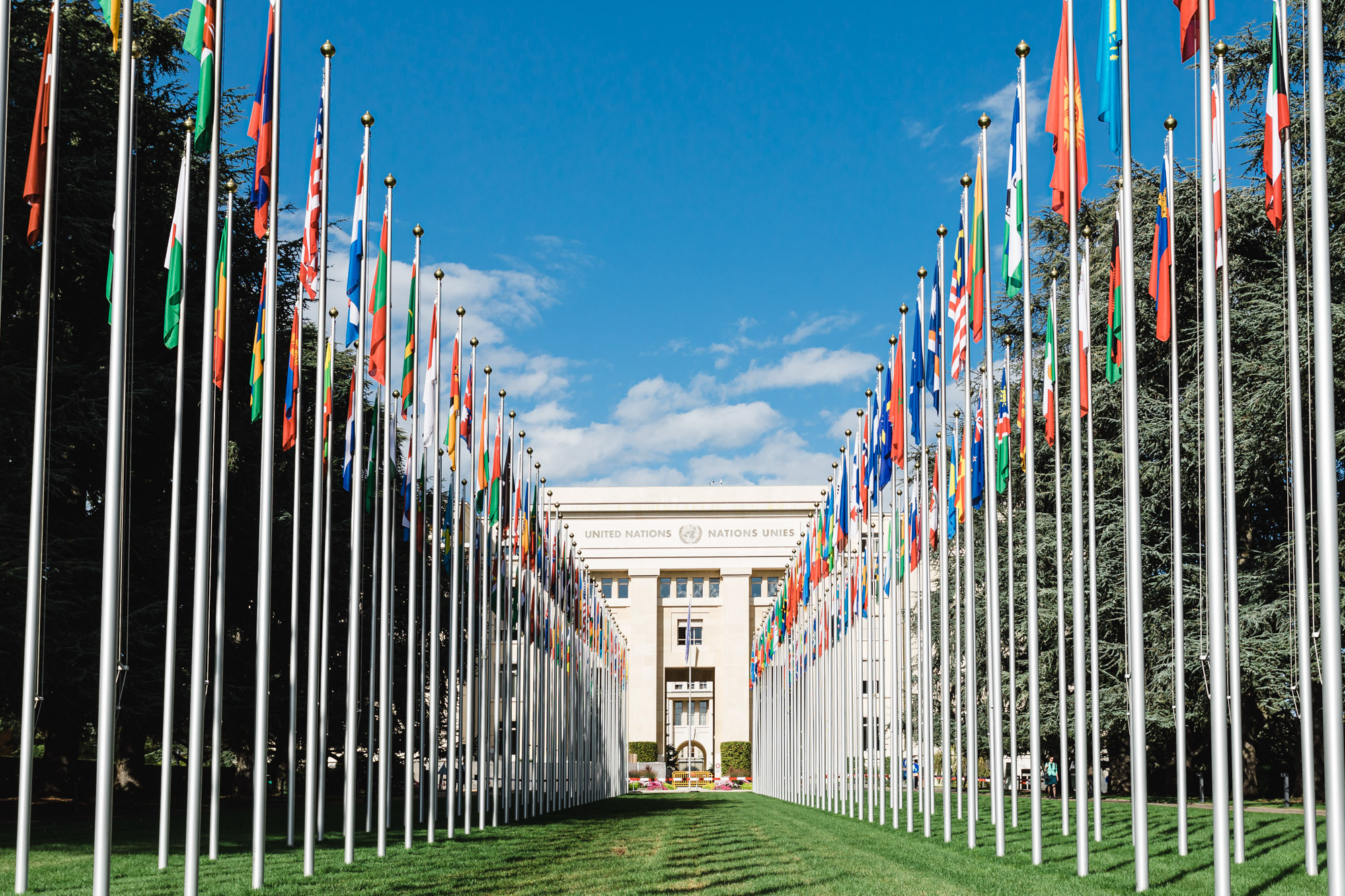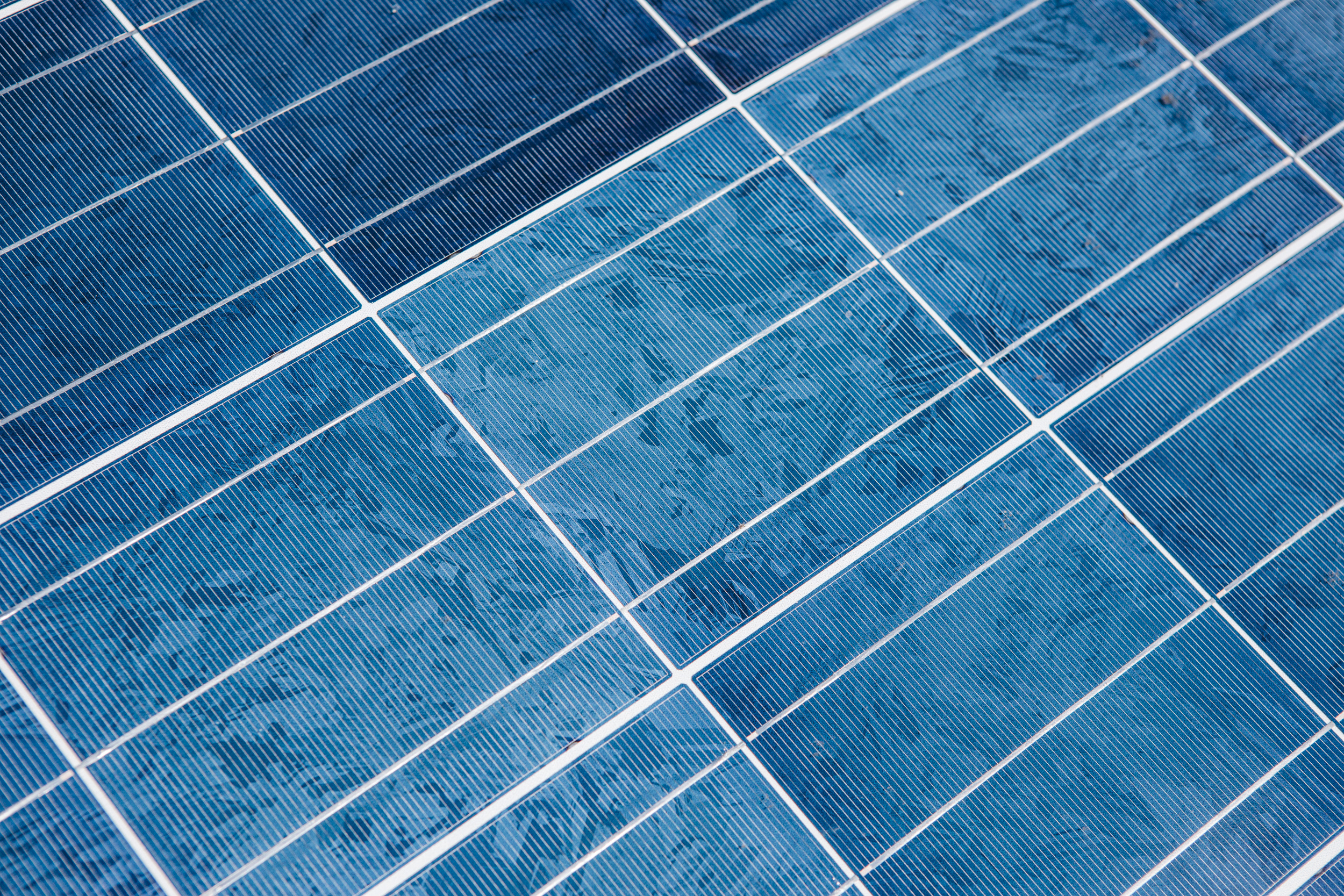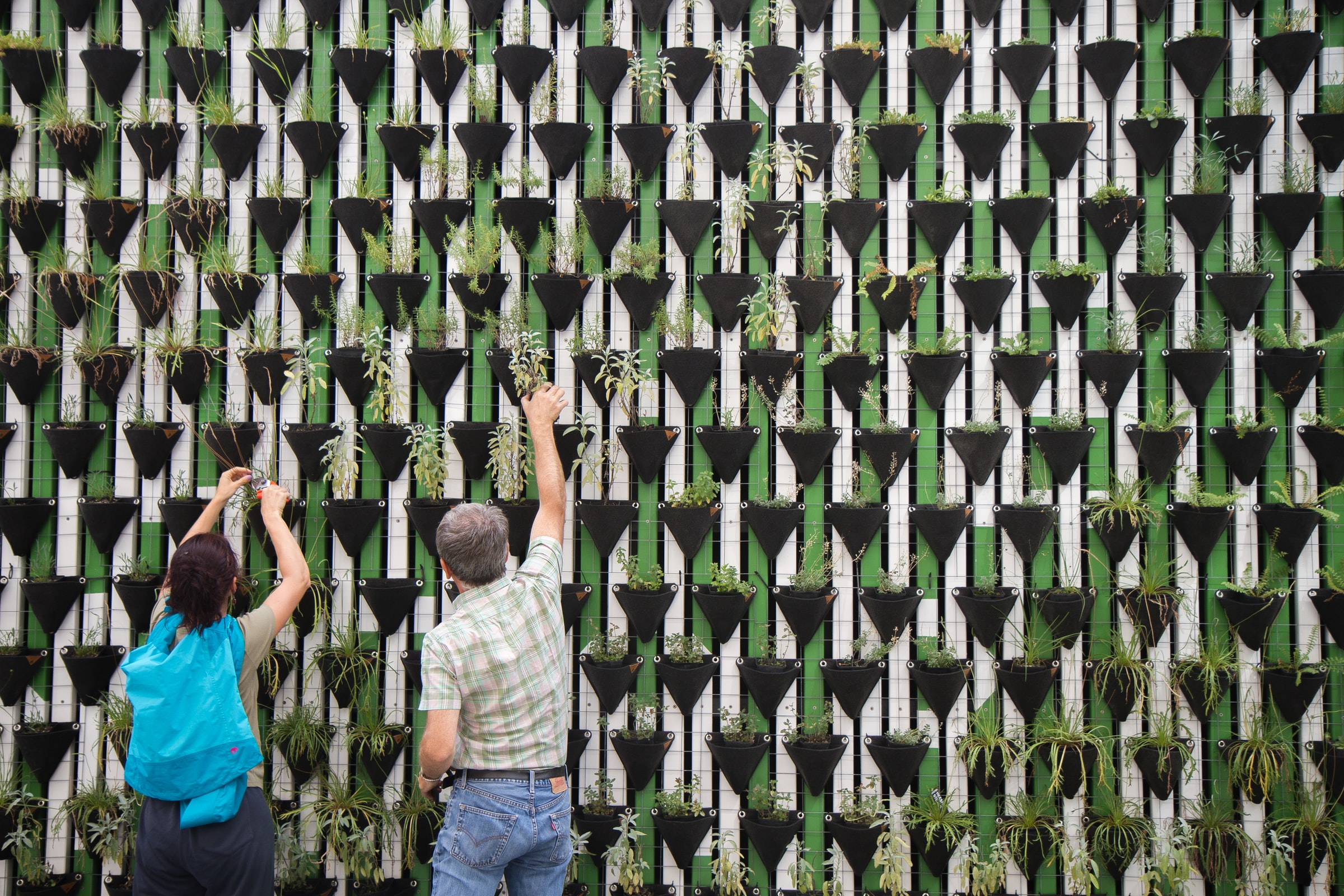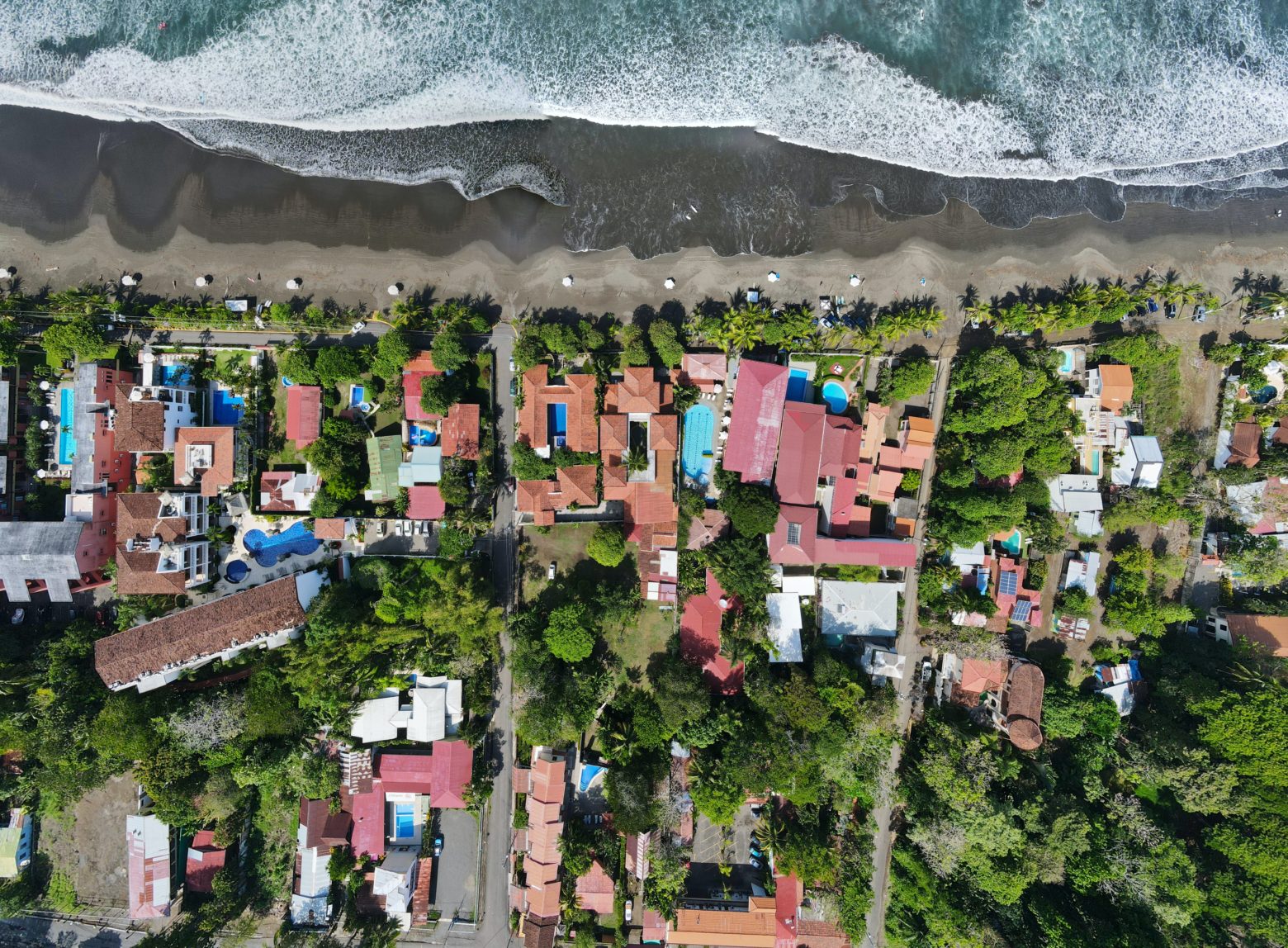Costa Rica’s journey to global climate leadership – what can we learn from a good example? Nature-based solutions and people. What prospects for the global carbon market after COP26? Synthetic petrol and diesel in cars: how clean are they really? Will China’s new coal plants become stranded economic assets? Reducing emissions by reducing food waste. Discover these and more online events of the week!
You can also subscribe to Climate Online’s newsletter to be reminded about weekly event updates by e-mail:

Biodiversity & Environment
6 – 10 December
“World Ocean Summit Asia-Pacific: Investing in a Blue Economy” by The Economist
The summit will convene 100 speakers and 2000 participants virtually over five days. Dedicated tracks on shipping, marine renewable energy, plastics, aquaculture, and fishing will provide insight focused on the Asia-Pacific. Plenary sessions will centre on pressing concerns for the ocean and cities and seek solutions for climate change mitigation and the dangerous decline of biodiversity in the region. A full track dedicated to finance will bring together executives from across the investment community. Speakers will share their experience of innovative blue-finance mechanisms to maximise the direction of mainstream finance towards the sustainable blue economy.
7 December, 14:00 – 15:30 CET
“Launch of the Sustainable Ocean Plan Guide and a new Action Coalition” by High Level Panel for a Sustainable Ocean Economy and World Resources Institute – WRI
This online event will launch 100% Sustainable Ocean Management: An Introduction to Sustainable Ocean Plans. Commissioned by the Ocean Panel, this guide elaborates on the ‘who, what, when, where, why and how’ of Sustainable Ocean Plans and suggests initial steps to help countries get started on—or accelerate—sustainable ocean planning. The event will also launch a new action coalition dedicated to providing the technical and financial assistance countries may need to develop their Sustainable Ocean Plans.
7 December, 15:00 – 16:00 CET
“GEO for Business Infrastructure Brief Launch – Future proofing infrastructure to address the climate, biodiversity and pollution crises” by UNEP
Businesses can benefit substantially from climate proofing infrastructure through reduced risks, lower costs, fewer stranded assets and new market opportunities, such as enabling diverse local industries. The ‘Future proofing infrastructure to address the climate, biodiversity and pollution crises’ brief reviews the impacts of climate change on infrastructure, the impacts of infrastructure on society and the environment and provides a roadmap of priority actions that businesses should follow.
9 December, 12:00 – 15:00 CET
“BioTrade Congress: Trade and biodiversity for a positive future” by UNCTAD
The 6th BioTrade Congress will address how trade contributes and impacts nature’s contribution to people. It will aim at proposing policy recommendations and business and civil society actions in seizing trade and biodiversity opportunities while enhancing nature’s contribution to people. Such actions will contribute to reducing biodiversity loss and building resilient livelihoods and economies. The outcome of this congress will support the implementation of UNCTAD’s Bridgetown Covenant and will provide not only practical experiences and tools to be more biodiversity-friendly, but also inputs to policy frameworks, such as the post-2020 global biodiversity framework as well as the SDGs.

Climate Science & Policy
6 December, 10:00 – 11:00 CET / 17:00 – 18:00 CET
“National Oil Companies and Climate Change: Insights for advocates” by International Institute for Sustainable Development – IISD
National oil companies (NOCs) are the “hidden half” of the global oil industry. Climate and development advocates who seek to reduce fossil fuel supply and promote sustainable economies must engage with these state-owned companies, many of which are based in countries with high levels of poverty. At each of these sessions, we will present NRGI and IISD’s new briefing paper that proposes five insights on how advocates can influence NOCs, followed by reactions from leading experts who are engaging with NOCs in their countries to spark a discussion among participants.
6 December, 14:00 – 15:00 CET
“A Comprehensive Guide to Climate Stress Testing” by United Nations Environment Programme Finance Initiative – UNEP FI
UNEP FI’s TCFD programme is launching a Comprehensive Good Practice Guide to Climate Stress Testing. The report aims to provide a detailed user guide for financial institutions looking to understand the climate stress testing and develop plans for effectively executing them. The guide covers emerging stress testing requirements from the latest exercises. It features detailed good practices on climate stress testing including on the teams and skills required, the data needed, the scenarios and models to use, and the application of outputs.
6 December, 15:00 – 16:00 CET
“Nature-based Solutions and People” by International Union for Conservation of Nature – IUCN and Geneva Environment Network
This dialogue session will provide an opportunity to discuss and advance rights-based and gender-responsive approaches to Nature-based Solutions for people and the environment. Panelists will share their views and recommendations on how to ensure that Nature-based Solutions engage and support the diverse contributions of all people, with particular attention to the rights and roles of women and men, youth and Indigenous peoples and local communities.
6 December, 19:30 – 21:30 CET
“Costa Rica’s journey to global climate leadership – what can we learn from a good example?” by International Institute for Environment and Development – IIED
Rebeca Grynspan is an economist with three decades of ministerial and UN experience, who has championed finance for development and women’s leadership. Ms Grynspan’s lecture will reveal how her time in government in Costa Rica – working on environment and climate policies – helped lay the groundwork for Costa Rica’s ambitious climate change agenda, eventually winning the small South American country many accolades, including this year’s Earthshot ‘Protect and Restore Nature’ prize announced at COP26. Ms Grynspan will outline the major challenges in realising these important global goals and the lessons for others pursuing similar aims.
7 December, 14:00 – 15:00 CET
“The recent climate negotiations: A perspective from the Global South” by Diplo
In this debate, speakers will take a closer look at the climate negotiations at COP 26 from a Global South perspective. They will explore some of the following questions: What has been achieved and what is still missing from a Global South perspective? Did we see the kind of global solidarity that is needed to address climate change successfully? Is multilateral diplomacy failing the Global South and, if so, what can be done to address this?
8 December, 13:00 – 15:00 CET
“Overcoming the COP26 Gaps: A Transformed EU External Action for a Climate-Just World” by E3G and Greens/EFA group in the European Parliament
The UN climate conference in Glasgow, COP26, kept open the possibility of accelerating climate action in the coming years. However, COP26 decisions on faster emissions cuts, scaling up finance for adaptation, and opening dialogue on mechanisms to address loss and damage barely nudged the trust deficit. Besides, the conference ended with important gaps in cooperation and financial and technical support. Without game-changing cooperation, we won’t be able to close the gaps to a climate-just world this decade. The EU, with its economic power, its excellent diplomatic standing, and its pre-existing ties when it comes to development cooperation, is in a unique position to help close these COP26 gaps. But how can we use this potential?
8 December, 17:30 – 18:30 CET
“Evidence Informed Climate Action” by Mathematica
During this forum you will hear from leadership at international development agencies about: (1) How increased urgency around climate change is shifting priorities to focus on strategies such as climate change adaptation; (2) The biggest barriers and opportunities to achieving success, and; (3) How data and research can help overcome these barriers.
9 December, 14:00 – 15:30 CET
“What prospects for the global carbon market after COP26?” by Florence School of Regulation – FSR
The part of the Paris Agreement Rulebook meant to implement these Article 6 provisions has just been agreed at the COP26 in Glasgow. However, many questions remain. What are the prospects for international carbon markets? Will this new Rulebook stimulate the possibility of moving toward a global carbon market? Or does it contain loopholes that could harm the environmental integrity of the mechanisms? What could governments do to ignite the global carbon market?
9 December, 14:00 – 15:30 CET
“The role of evaluation in addressing climate change” by CGIAR and Independent Office of Evaluation of IFAD (IOE)
The event aims to build on the outcomes of COP26 and discuss the role of evaluation for learning and bringing solutions towards the goals of the Paris Agreement and the UN Framework Convention on Climate Change. Dr Indran Naidoo, Director, Independent Office of Evaluation of IFAD (IOE) and Mr Suppiramaniam Nanthikesan, Lead Evaluation Officer, IOE, will lead the parallel session on “The role of evaluators/evaluation in decision making”.
9 December, 15:00 – 16:00 CET
“What does the Glasgow Climate Pact mean for the fight against the climate crisis?” by World Resources Institute – WRI and International Monetary Fund – IMF
Following two weeks of headline-making pledges and tough negotiations at COP26, countries agreed to the Glasgow Climate Pact. But what does the Pact mean for the fight against the climate crisis? How should it be implemented? And what needs to happen before COP27 in Cairo? This discussive event, featuring climate and finance experts, will explore key questions around the implications of COP26 outcomes and assess prospects for global coordination going forward.
10 December, 14:00 – 15:15 CET
“Climate change and forced migration in mountain areas: What are the solutions?” by Inter-Parliamentary Union and Adaptation at Altitude Programme
While mountain communities have long resorted to migration as a strategy to cope with limited resources and opportunities, forced migration due to climate change is increasingly affecting mountains and communities both upland and lowlands. This webinar will discuss migration and internal displacement due to climate change in mountain areas and explore a variety of solutions that increase mountain communities’ resilience and capacity to adapt by addressing some of the root causes of climate migration.
10 December, 16:30 – 17:30 CET
“Centering Climate Action in Climate Justice” by Skoll Centre for Social Entrepreneurship, University of Oxford
The Insights for Action seminar series explores how researchers and practitioners within and beyond Oxford are using research insights for action. Join us to hear conversations between researchers and practitioners who are working across disciplines, sectors, and media to understand and create more equitable and just social, economic, environmental, and health systems. In this seminar, Dr Jessica Omukuti and Raj Aggarwal draw on insights from The Climate Justice Playbook for Business: How to centre climate action in Climate Justice (2021) and Oxford Net Zero to discuss the systems work needed to build an equitable and climate just world.
10 December, 19:00 – 20:00 CET
“Reducing Emissions by Reducing Food Waste” by Environmental and Energy Study Institute – EESI
While composting is a solution for downstream food waste management, upstream reduction of food waste and food waste diversion can be the first steps to reduce emissions and resources unnecessarily used across the sector. Panelists will discuss some strategies available to policymakers that could bolster food waste reduction and diversion efforts.

Renewables & Energy Transition
6 December, 14:00 – 15:00 CET
“Synthetic petrol and diesel in cars: how clean are they really?” by Transport & Environment
Little is known about the air quality impacts of using synthetic fuels in cars, are they really clean as the e-fuels industry claims? Are e-petrol and e-diesel clean burning or are they just another polluting fuel? And what impact will their use have on cleaning up the existing fleets? Transport & Environment commissioned IFP Energies Nouvelles to test the pollutant emissions of a petrol car driving using different e-petrol blends. Join this webinar that will present the results and the other issues surrounding e-fuel use in road transport.
7 December, 15:00 – 16:30 CET
“EU’s Fit for 55 package: is the EU on its way for fossil free cities?” by Energy Cities
Cities are in the front line to decarbonise heating and cooling systems while conducting the renovation wave and drafting “heat planning”, and yet they are still facing numerous barriers limiting their capacity to lead this transition. This webinar aims therefore at highlighting the role cities can play in reaching the 55% CO2 emissions reduction by 2030, as long as the revised directives (RED and EED) provide the right support mechanisms and frameworks.
7 December, 16:00 – 17:00 CET
“Energy Transition to Boost the Fight Against Climate Change: Setting the Future Agenda” by International Renewable Energy Agency – IRENA and Enel Foundation
The event aims at setting the future agenda for youth engagement in the fight against climate change through a renewables-based energy transition. Young leaders from across the globe will come together to elaborate on the lessons learned from Pre-COP and COP26 and the role of youth in global climate actions. This webinar discusses the next steps for youth leaders to implement the outcome of COP26 and to actively engage in the energy transition for a sustainable future, in order to set the future agenda to boost the fight against climate change.
8 – 9 December
“Citizen’s Energy Forum 2021” by European Commission
Day 1 of the Forum will take place in the context of the Fit-For-55 package, the upcoming Gas Decarbonisation package, and recent price hikes. The plenary session will look at immediate and structural measures to protect vulnerable customers against price hikes, as well as consumer trends in an increasingly decarbonised, digitalised and integrated energy system. The parallel session will discuss key consumer issues that require further attention in order for the energy transition to work, including building consumer trust, engagement of energy poor and vulnerable households, protection of decarbonised heat and gas consumers, as well as digitalisation. Day 2 will provide behavioral insights on what makes citizens tick, and share hands-on advice and inspirational examples on how one can decarbonise their energy lifestyle and find the most suitable offer on the energy market.
8 December, 13:00 – 15:30 CET
“Public charging infrastructure deployment strategies and business models” by International Energy Agency – IEA
IEA holds this webinar on public charging infrastructure in the frame of the GEF Global e-mobility programme’s Working Group 4 on charging and grid integration. The webinar will address public charging infrastructure roll-out strategies and regulatory measures to enable successful business models. Expert presentations will allow listeners to understand the strategies for the deployment of public charging infrastructure and identify relevant business models.
9 December, 22:00 – 23:30 CET
“Perspectives on Future Power Grids” by International Solar Energy Society – ISES
This webinar will present a number of perspectives on future power grids such as technical aspects, grid reliability, policies, and financing as well as aspects of societal acceptance of future power grids.
10 December, 16:00 – 17:00 CET
“Will China’s new coal plants become stranded economic assets?” by International Association for Energy Economics – IAEE
Despite its carbon neutrality commitments, China is continuing to build new coal-fired plants. Several analyses of Chinese coal plants’ financial prospects suggest that such investments by China’s power companies will become stranded assets from the perspective of their investors. These assessments are grounded in financial analyses of the power plant from this investor perspective, rather than explicitly considering the economic returns that in principle motivate China’s government, particularly in its role as shareholder of the state-owned power companies that dominate coal-fired generation in China. Speakers will revisit the prospect of these plants becoming stranded assets through this “economic” prism, taking into account China’s rising climate ambition.

Sustainability & Circular Economy
6 December, 15:00 – 16:30 CET
“Nature-based Solutions and People” by Geneva Environment Network and International Union for Conservation of Nature – IUCN
This dialogue session will provide an opportunity to discuss and advance rights-based and gender-responsive approaches to Nature-based Solutions for people and the environment. Panelists will share their views and recommendations on how to ensure that Nature-based Solutions engage and support the diverse contributions of all people, with particular attention to the rights and roles of women and men, youth and Indigenous peoples and local communities. Convened just before Human Rights Day the dialogue will advance understanding of how Nature-based Solutions also can contribute to reducing gender gaps and barriers and to the realization of gender equality and human rights.
7 December, 14:00 – 15:30 CEST
“Material substitutes to single-use plastics in developing countries” by UNCTAD and Forum on Trade, Environment, and the SDGs – TESS
This informal roundtable will discuss opportunities in Sub-Saharan Africa and South Asia, particularly natural fibres, to assess the viability of alternative feedstocks and end-use products. By bringing together stakeholders across various sectors and geographies engaged in the plastics challenge, the event will preview findings from an upcoming report focused on material substitutes for sub-Saharan Africa and South Asia, which explored trade aspects of material transition in countries such as Bangladesh, Kenya and Nigeria.
7 December, 14:00 – 15:30 CET
“Agricultural Plastics: the Good, the Bad and the Ugly” by FAO and UNEP
Agricultural plastics have delivered benefits including improved yields, reduced water use, reduced food loss and waste. However, agricultural plastics also cause damage to the long-term viability of soils, pollute our waters, and harm animal and human health. Tackling plastic pollution in agriculture is a pressing concern. It is now essential to support the transformation towards sustainable agri-food systems. Thus, the newly published report “Assessment of agricultural plastics and their sustainability: a call for action”, comes at a pivotal time.
7 – 9 December
“Sustainable waste management towards a pollution free planet” by United Nations Environment Programme – UNEP
The pollution-free planet cannot be achieved without efficient circularity of resources and reduction of waste both at individual and society levels. This year’s Global Dialogue invites leaders and experts who are actively contributing to promoting sustainable waste management in various countries and regions. Over the scheduled 3 days, attendees will gather at both online and a venue in Tokyo to discuss specific themes around waste management to protect the future of our planet.
8 December, 19:00 – 20:00 CET
“Building Materials: From Production to Reuse” by Environmental and Energy Study Institute – EESI
The built environment uses an immense amount of carbon-intensive materials such as concrete and steel. Switching building materials to lower-carbon alternatives can reduce the climate impacts of the built environment, but first, systems must be put in place to assess and reduce the carbon intensity of materials. When buildings reach the ends of their lives, there are also opportunities to reuse materials. Panelists will discuss ways to reduce emissions and material waste in the built environment from construction and deconstruction.
8 – 9 December
“Sustainable Business Summit: Focus on Finance” by Bloomberg
The Summits bring together business leaders and investors globally to drive innovation and scale best practices in sustainable business and finance.Hosted in conjunction with Bloomberg’s Fourth Annual Sustainable Finance Week, the final summit of the year will provide key examples of how companies and investors are making the financial case for sustainability. They will break down emerging regulatory and reporting trends, how to leverage financial resources to optimize your sustainability strategy, and how to maximize performance while providing a positive social impact.
9 December, 14:00 – 15:00 CET
“How Sustainability Indicators Can Drive Better Decision-Making: Lessons From Argentina and Brazil” by World Resources Institute – WRI and UrbanShift
Join for the webinar to explore how national governments are supporting cities to become more sustainable through the implementation of sustainability indicators and diagnostic tools for strategic decision-making and urban development. You’ll hear from national and local-level officials in Argentina and Brazil about their efforts to apply these newly launched tools and the ways in which the lessons can be replicated in other countries and cities around the world.
9 December, 19:00 – 20:00 CET
“The Climate Consequences of Plastics” by Environmental and Energy Study Institute – EESI
Plastic production is expected to account for an increasing portion of global oil consumption and its resulting greenhouse gas emissions as plastics become more ubiquitous worldwide. Panelists will discuss findings from Beyond Plastics’ new report, The New Coal: Plastics and Climate Change; how emissions associated with plastic production affect communities across the country; and potential policy solutions.
10 December, 11:00 – 12:30 CET
“Plastic Waste in Mountains” by UNEP and Geneva Environment Network
On the occasion of the International Mountain Day on 11 December, this dialogue provides an opportunity to put mountains in the spotlight of the global efforts to address plastic pollution. It will serve as an opportunity to present the key conclusions of a draft report being finalized under the project Plastic Waste in Remote and Mountainous Areas, captivating findings of the 2021 Global Mountain Waste Survey, 10 steps to be a Mountain Hero and compelling insights of mountaineers.

